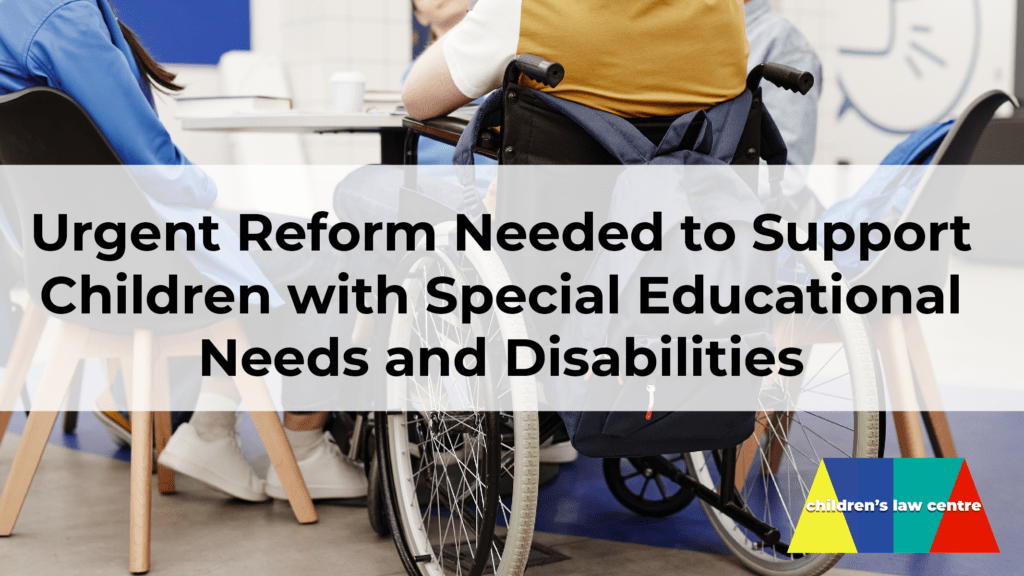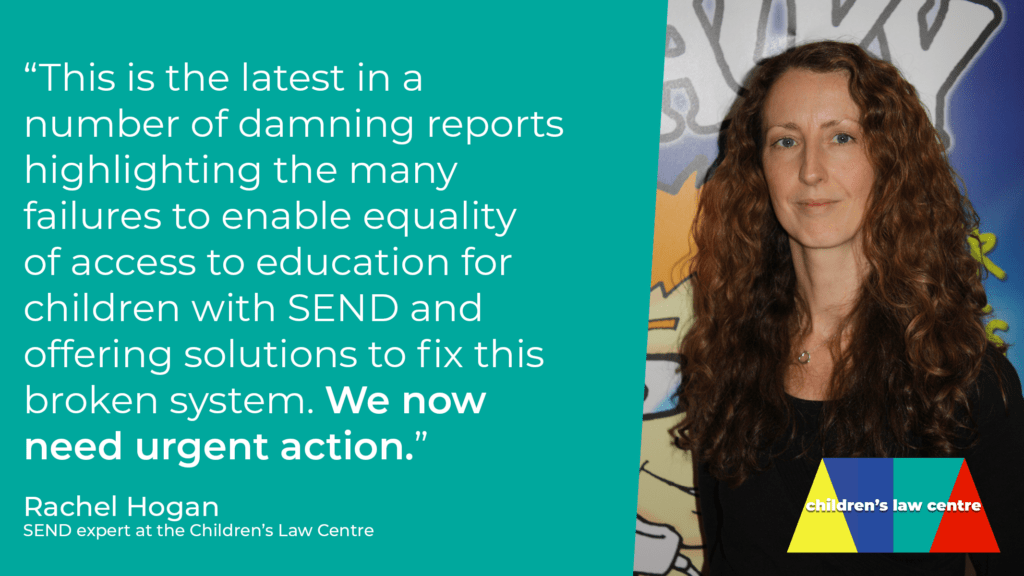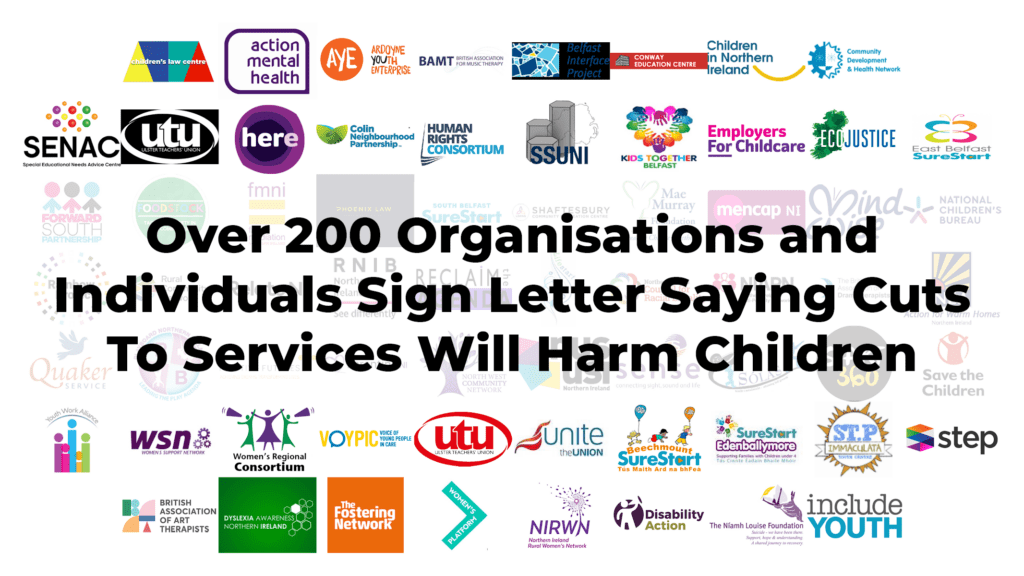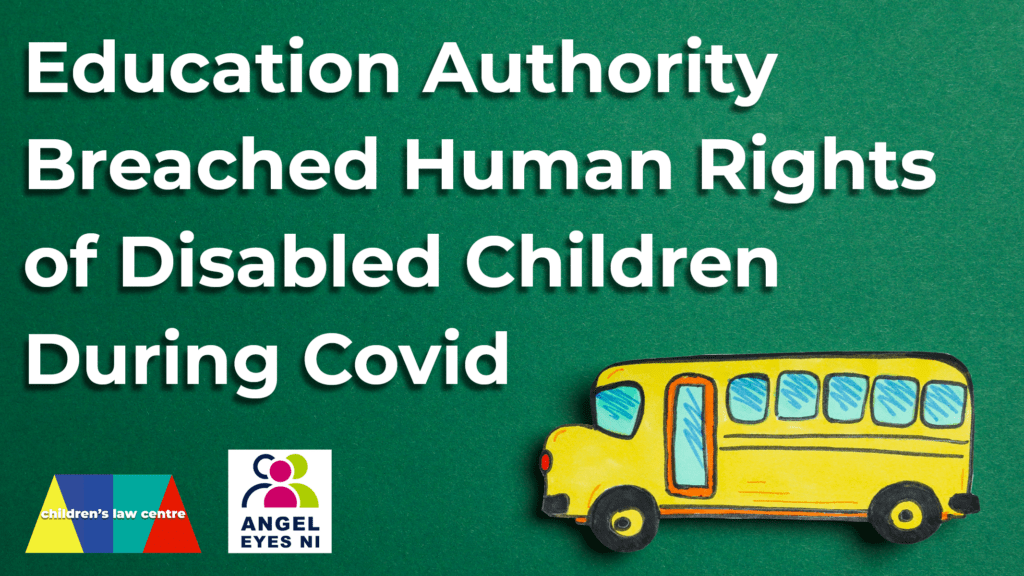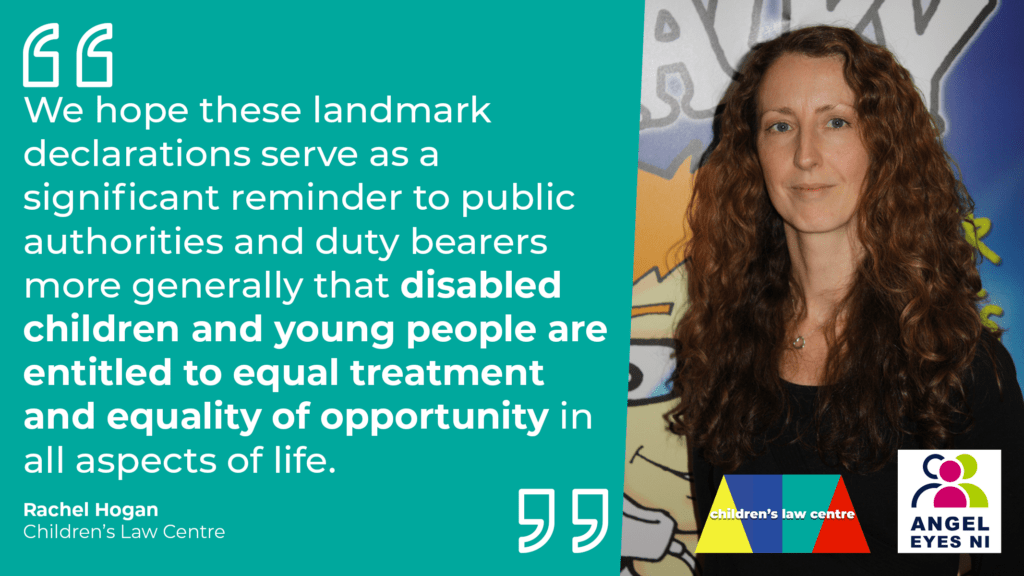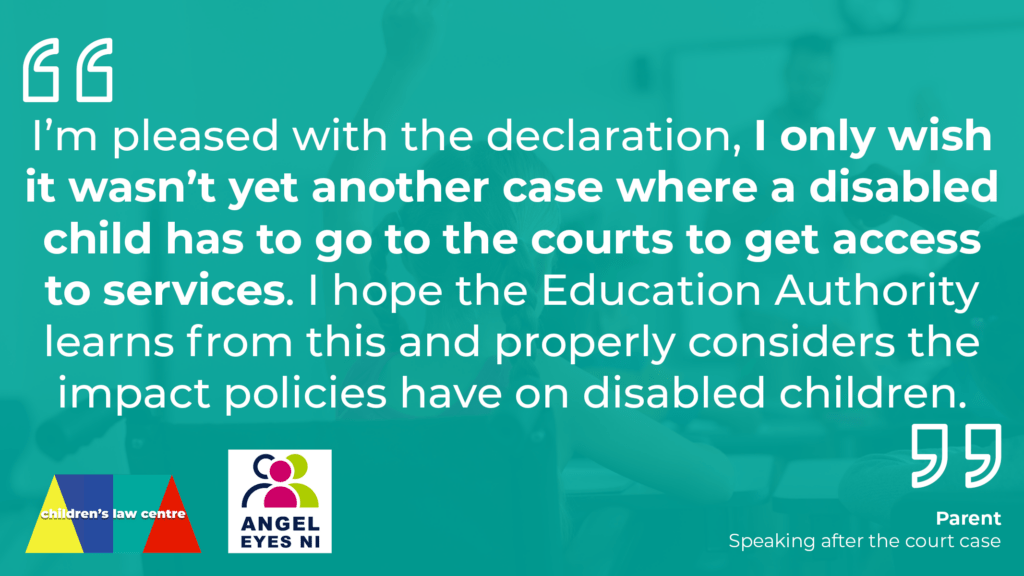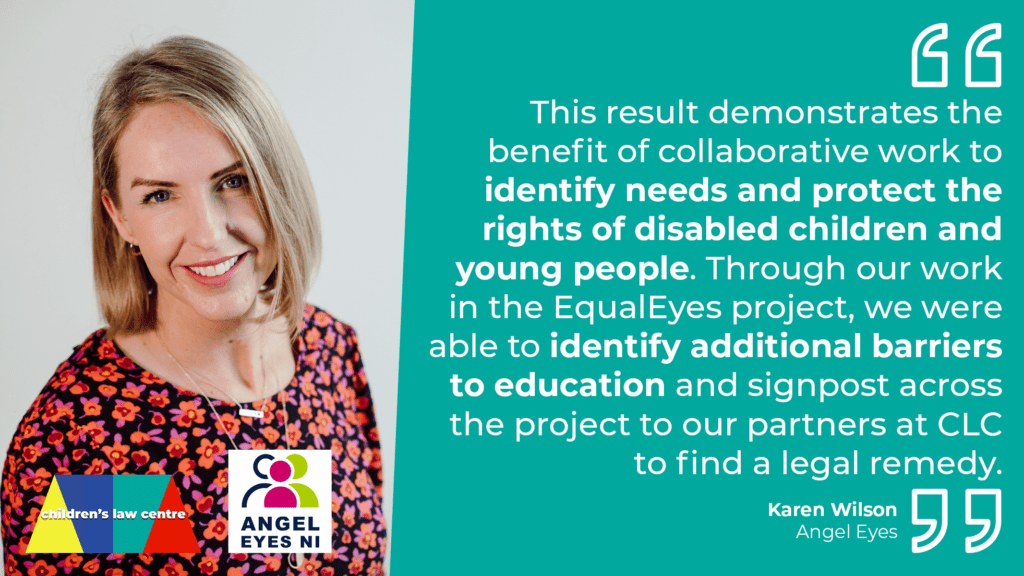Monday 28 July 2025
Chronic school absence has been a growing concern across Northern Ireland, with rising numbers of young people disengaging from education. But too often, conversations about this issue overlook the voices of those most affected — the young people themselves.
This project set out to change that.
Through a series of honest, powerful video interviews, we asked a small group of young people to share their experiences, challenges, and hopes around school attendance. The stories that emerged are complex, deeply personal, and help us understand how the education system is, or isn’t, working for many children and young people.
The young people involved have been failed by the education system in various respects, but are now speaking out as child rights defenders to help secure changes for future generations.
Why This Project Matters
The young people we spoke to have lived through school systems which they feel have not had the capability to support them, whether due to bullying, mental health struggles, unmet health and social care needs, ill equipped physical environments, rigid expectations, or a lack of genuine connection with the adults and peers around them. Yet their insights also point the way towards more compassionate, responsive, and inclusive solutions.
These interviews highlight key themes, including:
- The impact of mental health on attendance and engagement.
- The importance of positive teacher student relationships.
- Experiences of bullying and feeling unsafe in school.
- Barriers related to special educational needs and disability.
- A desire for more flexible, relevant, and student centred education.
- The need for a sense of belonging and acceptance within the school community.
One thing that was clear throughout the entire project, was that young people want to be heard and taken seriously. A failure to do that will result in a failure to tackle the problem.
What You’ll Find
Below, you can watch and listen to the young people in their own words. Young people who have taken a brave decision to speak out and become child rights defenders.
Each video offers a unique perspective, some heart breaking, others hopeful, but all are united by a call for change rooted in lived experience.
Meet the Young People
- Alex: Once enthusiastic about school, Alex’s experience of bullying and feeling unheard by staff led to significant disengagement and school avoidance. He reflects on feeling unsupported and unmotivated.
- Chris: Speaks candidly about the impact of school on his deteriorating mental health, and the stress of feeling unseen and misunderstood, especially when trying to mask neurodivergent traits.
- Ian: Shares the barriers he faced due to the lack of accessibility in his school, highlighting how systemic inaction limited his educational opportunities.
- Owen: Reflects on the trauma of being dismissed and punished in primary school and how a lack of empathy led to early disengagement. A compassionate teacher made a lasting positive difference, even if, in the end, it was too late to prevent him from leaving school.
- Kanye and Lukas: Talk about the role of friendship, inconsistency in learning experiences and feeling misunderstood, showing how school environment and relationships shape attendance and achievement.
A Call to Listen and Act
These stories are not isolated. They reflect broader patterns that need urgent attention. By truly listening to young people we can begin to design systems that work with them, not against them.
Children’s Rights and Chronic School Absence: A Rights Based Approach
Chronic school absence isn’t just an educational issue — it’s a children’s human rights issue.
Under the United Nations Convention on the Rights of the Child (UNCRC), every child has the right to an effective education (Articles 28 and 29). More than that, they have the right to be listened to (Article 12), to mental health support (Article 24), and to access all of their rights without discrimination (Article 2).
The United Nations Convention on the Rights of Persons with Disabilities (UNCRPD) also sets out clear obligations on states to ensure disabled children enjoy their rights in school on an equal basis with others. Every disabled child has the right to access education without discrimination and on the basis of equal opportunity (Article 24); and they must enjoy all human rights and fundamental freedoms, with their views given due weight (Article 7). Schools, transport, communication, and learning materials must be physically and practically accessible to all pupils (Article 9); and disabled children must not be left behind due to systemic neglect, inaccessible environments, or untrained staff (article 5).
The young people we interviewed told us clearly: they often didn’t feel respected or heard in school environments. Their mental health needs were not effectively supported. Their additional needs were not being met and reasonable adjustments were absent or hard fought for. Their differences were misunderstood by those around them and their voices were missing from decisions about their own education.
Watch the Interviews
Thanks
We are grateful to the LFT Charitable Trust who, in recognising the importance of this participative research project, provided a grant to enable its completion.
We would also like to thank all the young people who took part in the project as well as Strive NI, Larne YMCA and Barnardos for their help throughout the project.



